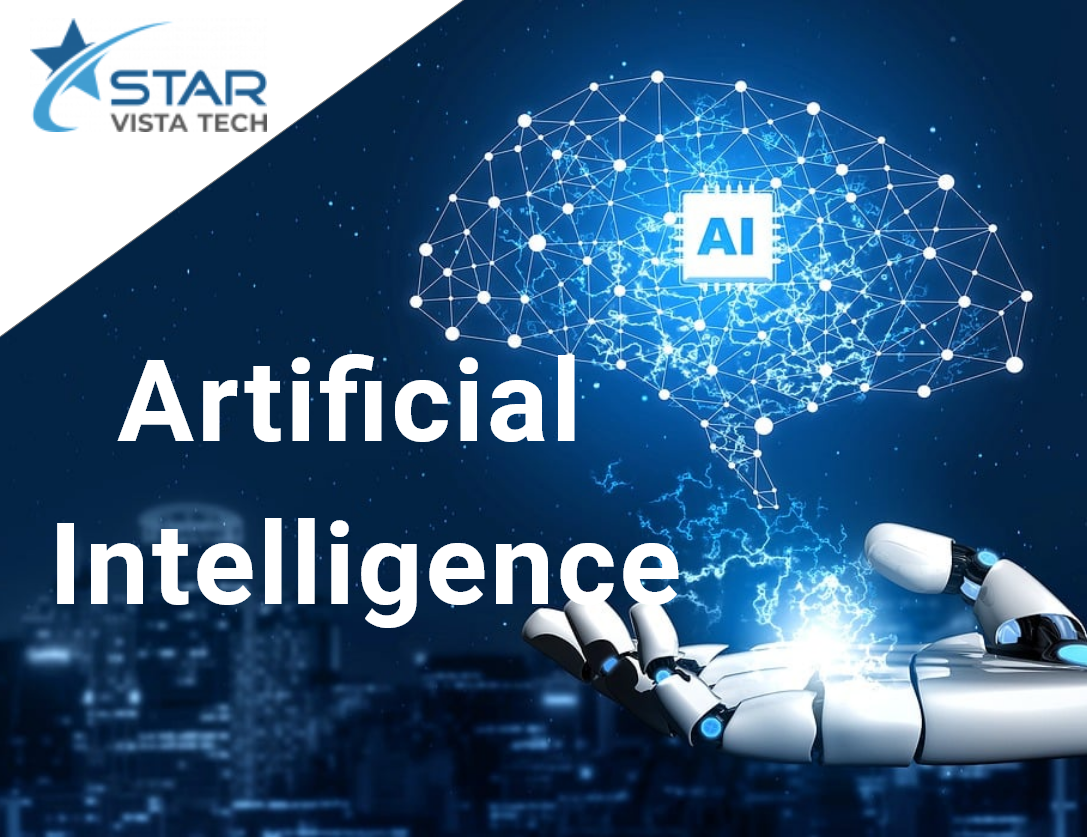
Introduction: In recent years, the term “Artificial Intelligence” (AI) has become increasingly pervasive, sparking both excitement and concern about its potential impact on society. From self-driving cars and personalized recommendation systems to virtual assistants and medical diagnostics, AI is transforming how we live, work, and interact with technology. In this blog post, we’ll delve deep into the world of AI, exploring its origins, applications, challenges, and future prospects.
Origins of Artificial Intelligence: The concept of AI traces back to ancient times, with early myths and stories featuring artificial beings endowed with human-like intelligence. However, the modern field of AI emerged in the 1950s, fueled by the pioneering work of researchers like Alan Turing, who proposed the famous Turing Test to assess a machine’s ability to exhibit intelligent behavior indistinguishable from that of a human. Over the decades, AI has evolved from symbolic logic and rule-based systems to encompass more sophisticated approaches such as neural networks and deep learning.
Types and Applications of AI: AI encompasses a diverse range of technologies and techniques, each tailored to specific tasks and domains. Machine learning, a subset of AI, enables computers to learn from data and make predictions or decisions without explicit programming. Natural language processing (NLP) allows machines to understand and generate human language, powering applications like language translation, sentiment analysis, and chatbots. Computer vision enables machines to interpret and analyze visual information, driving innovations in areas like facial recognition, object detection, and autonomous vehicles. Robotics combines AI with mechanical engineering to create intelligent machines capable of performing physical tasks in various environments.
Challenges and Ethical Considerations: Despite its immense potential, AI faces several challenges and ethical considerations. One major concern is the ethical use of AI, including issues related to privacy, bias, transparency, and accountability. As AI systems become more integrated into society, it’s crucial to ensure they adhere to ethical principles and respect human rights. Additionally, the rapid advancement of AI raises questions about its impact on employment, with concerns about job displacement and the need for reskilling and upskilling the workforce to adapt to the changing labor market.
Future Prospects and Opportunities: Looking ahead, the future of AI holds immense promise for innovation and transformation across various industries. As AI technologies continue to evolve, we can expect to see advancements in areas such as personalized healthcare, precision agriculture, smart cities, and sustainable energy. Moreover, AI has the potential to address some of the world’s most pressing challenges, from climate change and healthcare disparities to economic inequality and global security. However, realizing the full potential of AI requires collaboration among researchers, policymakers, industry leaders, and the public to ensure its responsible development and deployment.
Conclusion: Artificial Intelligence is revolutionizing the way we live, work, and interact with technology, offering unprecedented opportunities for innovation and transformation. By understanding its origins, applications, challenges, and prospects, we can navigate the complex landscape of AI and harness its power for the benefit of society. As we embark on this journey, let’s strive to uphold ethical principles, foster inclusivity, and ensure that AI serves the common good, empowering us to build a more prosperous and equitable future for all.
